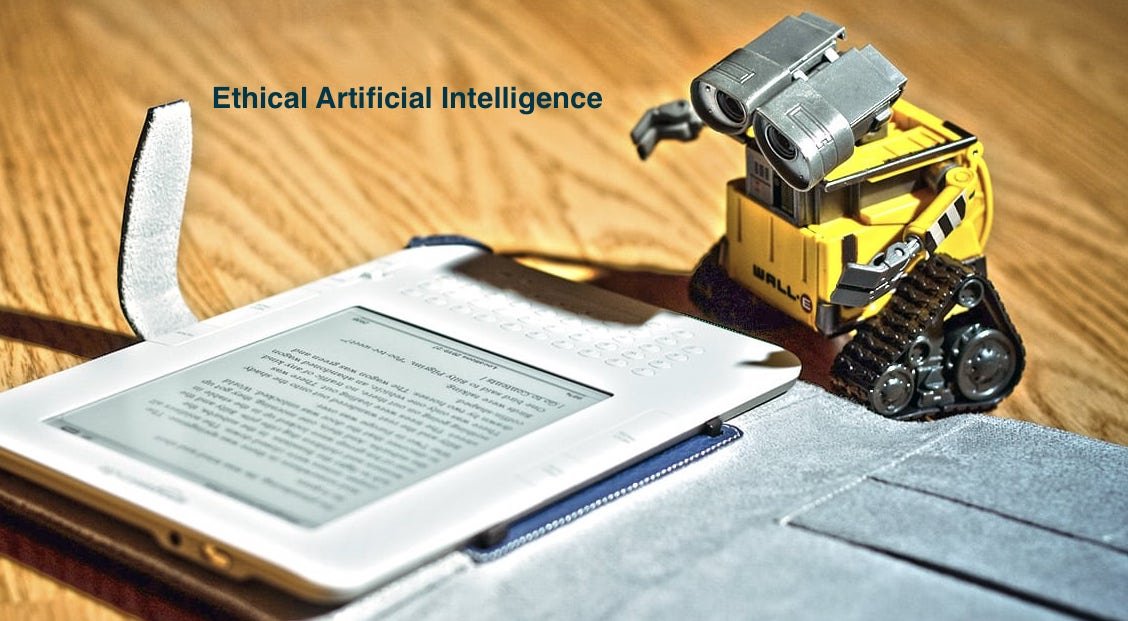Hello, fellow explorers of the digital realm! As we journey deeper into the age of AI, the compass of ethics has never been more critical. In this post, we will embark on a voyage through the intriguing world of Ethical AI (Ethical Artificial Intelligence). We’ll navigate through the complexities, challenges, and promises of AI designed to uphold our values, protect our privacy, and promote fairness. Our mission? To make the world of AI understandable and accessible in a simple, human-friendly tone.
The Rise of Ethical AI
In our tech-driven world, artificial intelligence is everywhere, from virtual assistants to autonomous vehicles. However, concerns have grown about the ethical implications of AI, especially regarding issues like AI bias concerns, AI transparency, and AI accountability. Ethical AI’s importance has become a hot topic as we grapple with the impact of intelligent systems on society.

Definition of Ethical Artificial Intelligence
What exactly is Fair Ethical AI? It’s AI that adheres to a set of principles and AI transparency guidelines designed to ensure fairness, transparency, and respect for human values. This means AI systems should not discriminate, should be transparent in their decision-making processes, and should prioritize human well-being. Understanding the core principles of Ethical AI is essential for building a responsible digital future.
The Moral Imperative of Artificial Intelligence
Why is ethical AI so crucial? It’s not just a matter of following rules; it’s about preserving our humanity in the face of technological advancement. By ensuring AI aligns with our values, we prevent harmful consequences and promote trust in these systems.
The moral imperative of Ethical AI safeguards us from the potential pitfalls of unchecked technology and preserving human values in AI by trust in the AI system.
The Key Principles of Ethical Artificial Intelligence
Ethical AI is guided by principles like fairness, transparency, accountability (accountable AI systems), and privacy. Let’s delve into each of these principles and understand what they mean in the context of fair AI algorithms and transparent AI decision-making. These principles serve as the foundation of Ethical AI, ensuring that privacy in AI systems works for the benefit of all.
Fairness in Artificial Intelligence
AI systems can inadvertently perpetuate biases present in their training data. Ethical AI aims to correct this by ensuring that algorithms are fair and don’t discriminate against any group like a Bias-free AI or we can say AI fairness. Fairness is a cornerstone of Ethical AI, ensuring that AI systems treat everyone equitably.
Artificial Intelligence Transparency and Explainability
AI decision understanding can often seem like a black box. Ethical AI demands that these decisions be transparent and explainable. This means understanding how explainable AI reaches its conclusions. Transparency and explainability build trust in AI systems by demystifying their operations as Transparent AI algorithms.
Fair Accountability in Artificial Intelligence
Who’s responsible when AI accountability makes a mistake? Ethical AI requires clear lines of accountability, ensuring that there are mechanisms in place to rectify errors and prevent them from happening again with a fair responsibility in AI. Accountability is vital in Ethical AI to hold individuals and organizations responsible for AI system behavior or error rectification in AI.
Privacy and Data Protection via Artificial Intelligence
Our data is often used to train AI systems. Ethical AI demands stringent privacy protections (Privacy in AI) to ensure our data isn’t misused and our privacy is respected with data protection in AI. Protecting privacy is fundamental to Ethical AI, safeguarding our personal information from misuse.
Ethical Artificial Intelligence in Practice
How do we put all these principles into action? It’s not just about theory; it’s about implementing Ethical AI in real-world applications. We’ll explore examples of Ethical AI in healthcare, finance, and more. Seeing Practical Ethical AI in action demonstrates its practical impact on various sectors.
Challenges and Future Directions
Ethical AI is not without its challenges, from bias mitigation to regulatory hurdles. However, Challenges in Ethical AI occur as technology evolves, and so does our understanding of how to make AI more ethical. Overcoming these challenges is key to advancing the field of Ethical AI.
Conclusion
As we conclude our journey through the world of Ethical Artificial Intelligence, we’re reminded that technology doesn’t have to compromise our values. Ethical AI offers a path forward, ensuring that as AI becomes more integrated into our lives, it does so responsibly, fairly, and transparently. By understanding the principles and practices of Ethical AI, we can shape a future where technology serves humanity while respecting our ethical boundaries.

